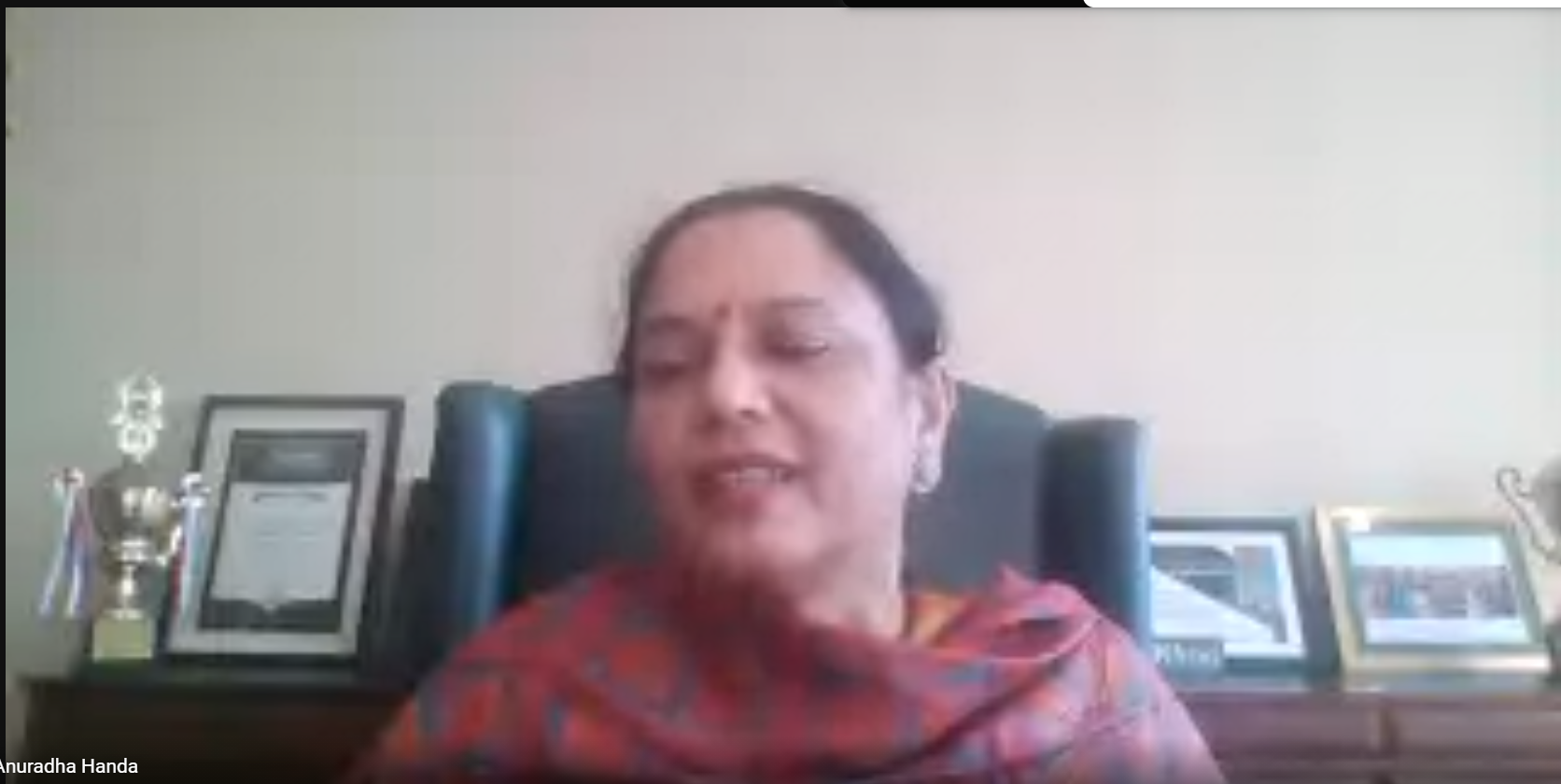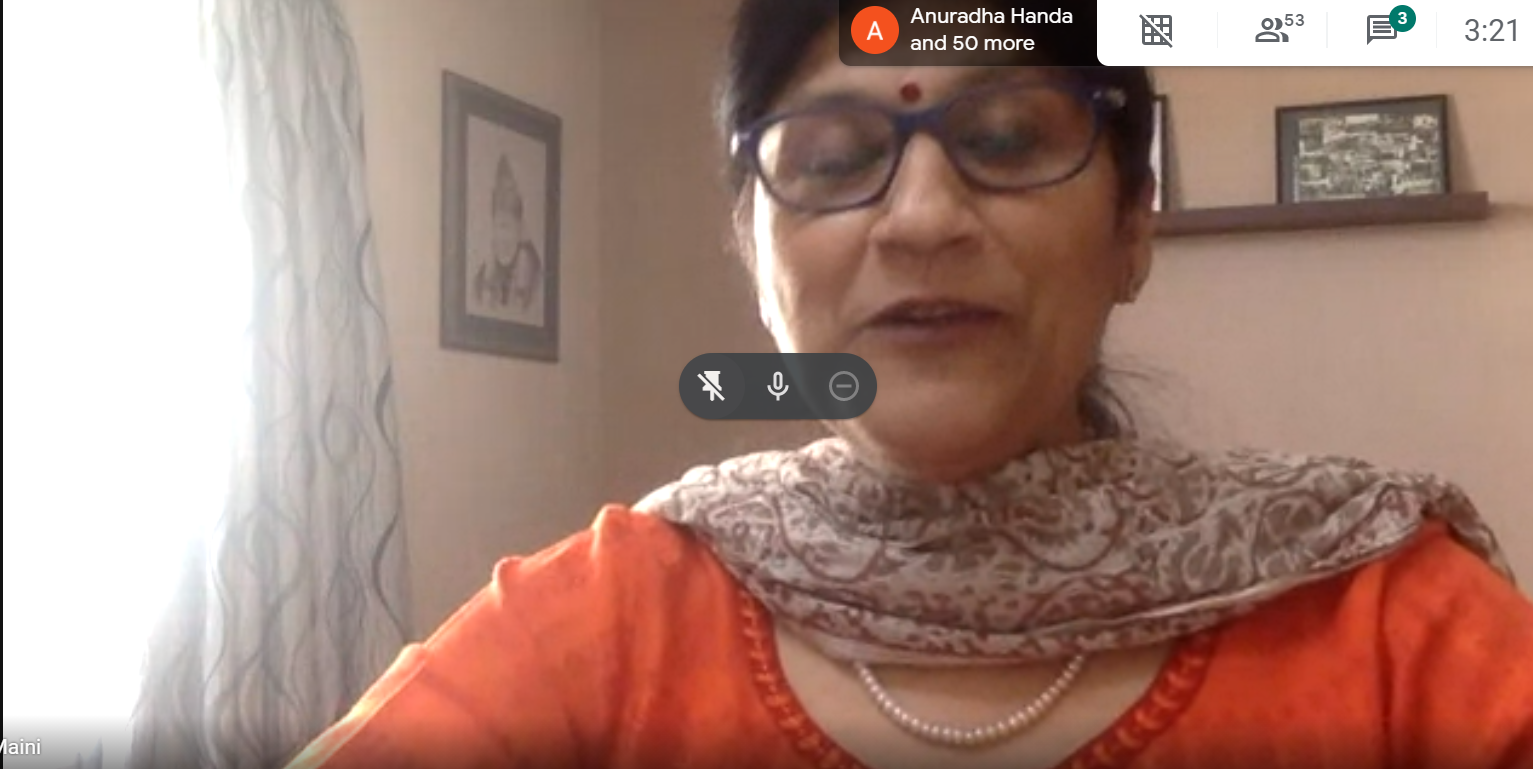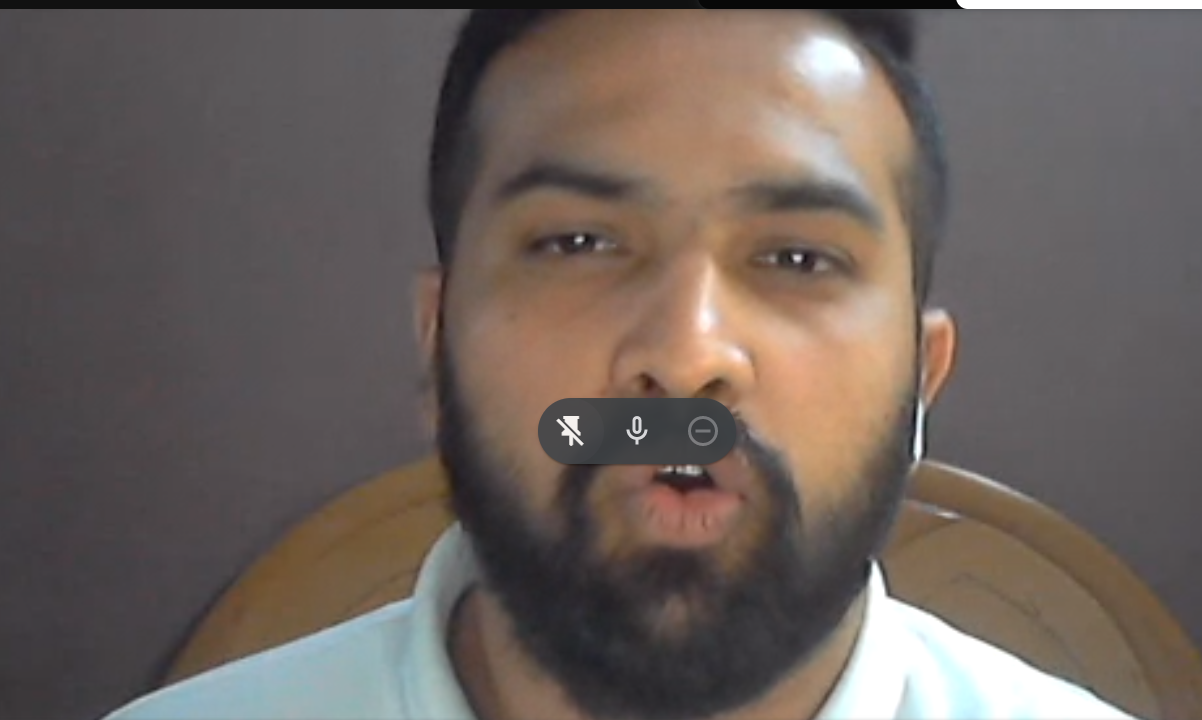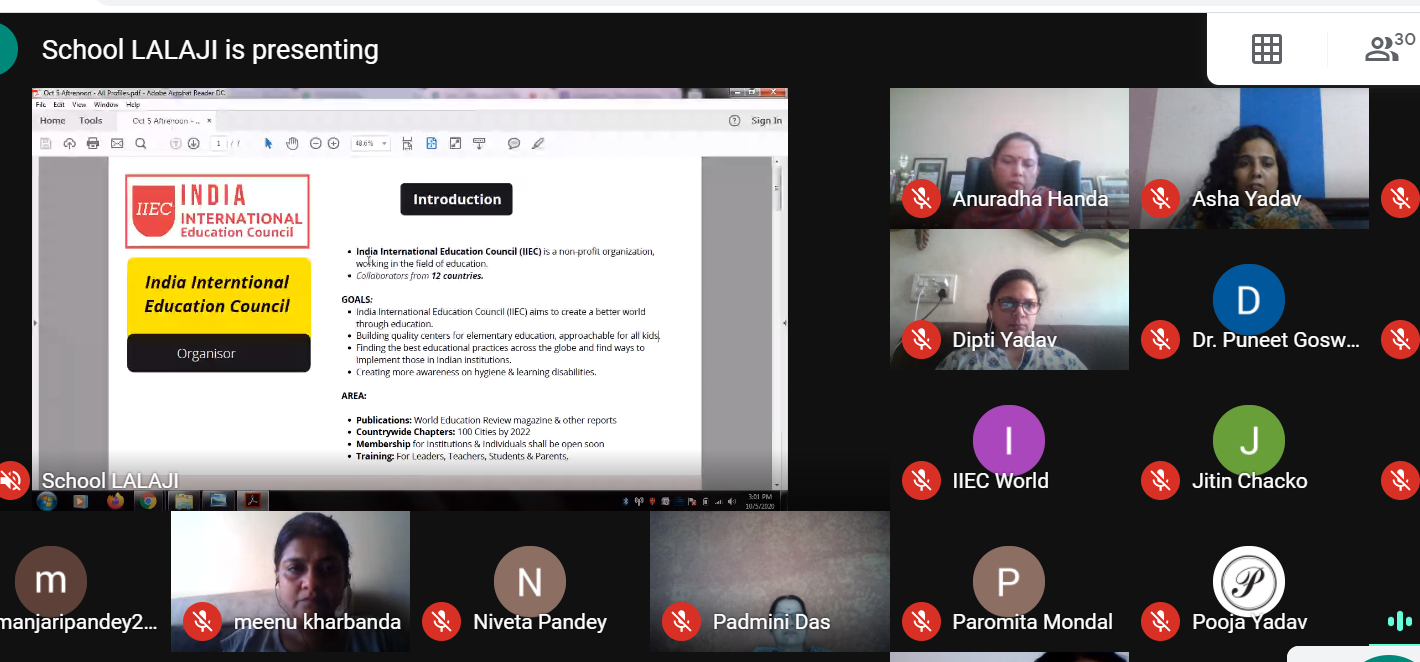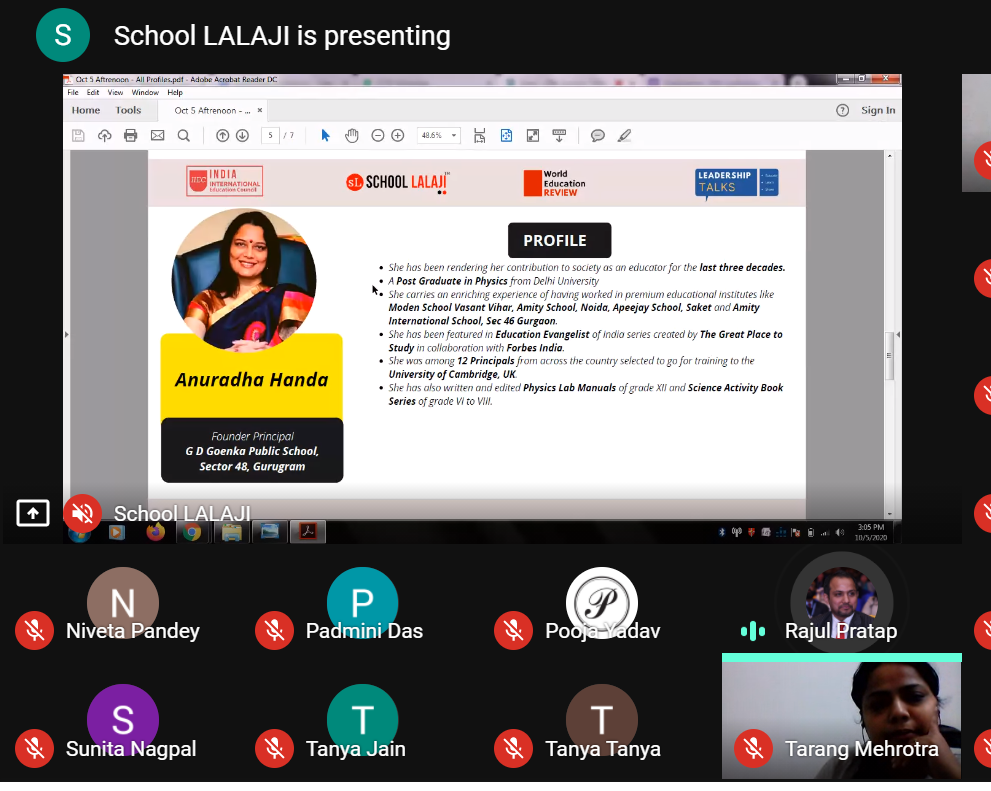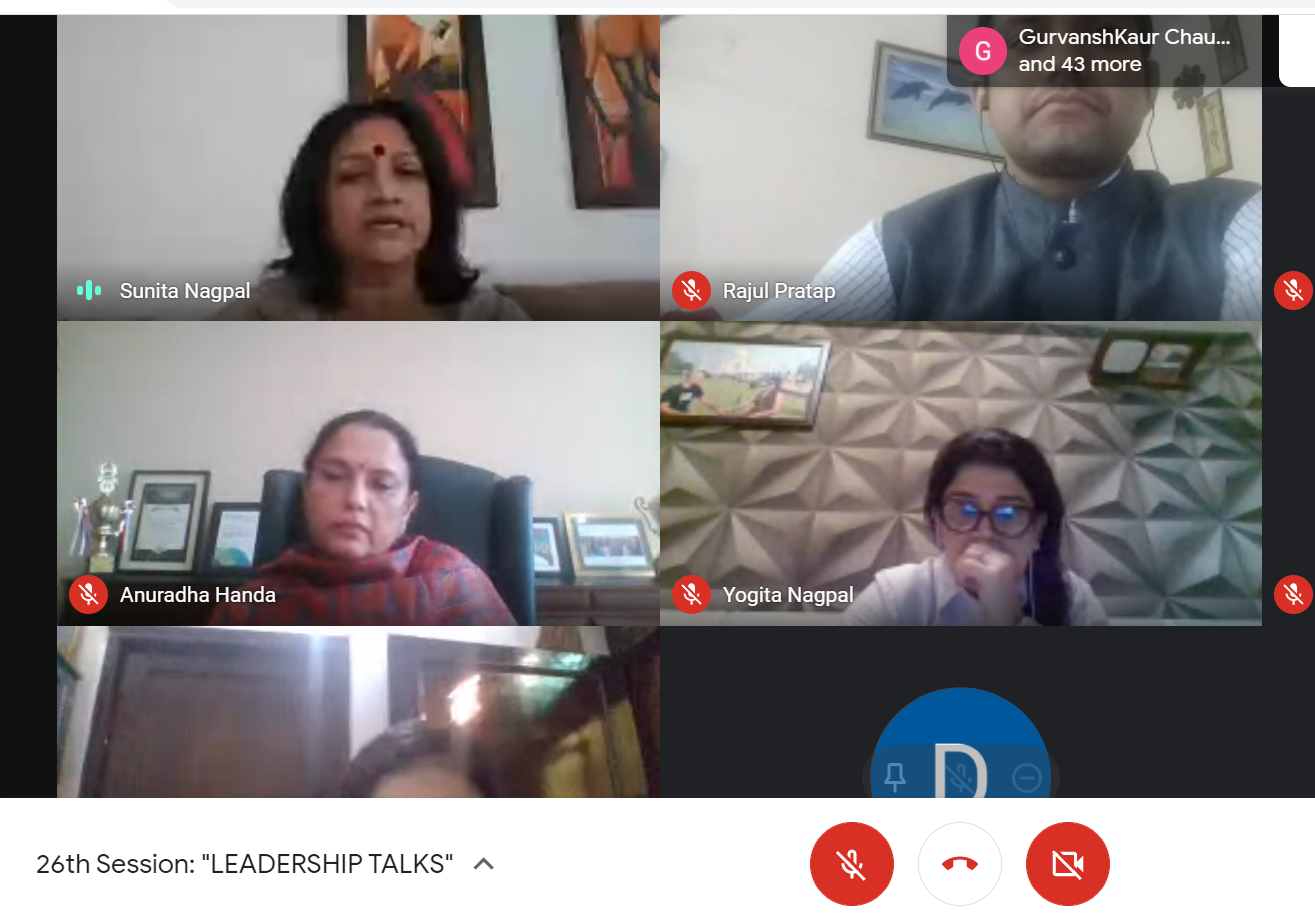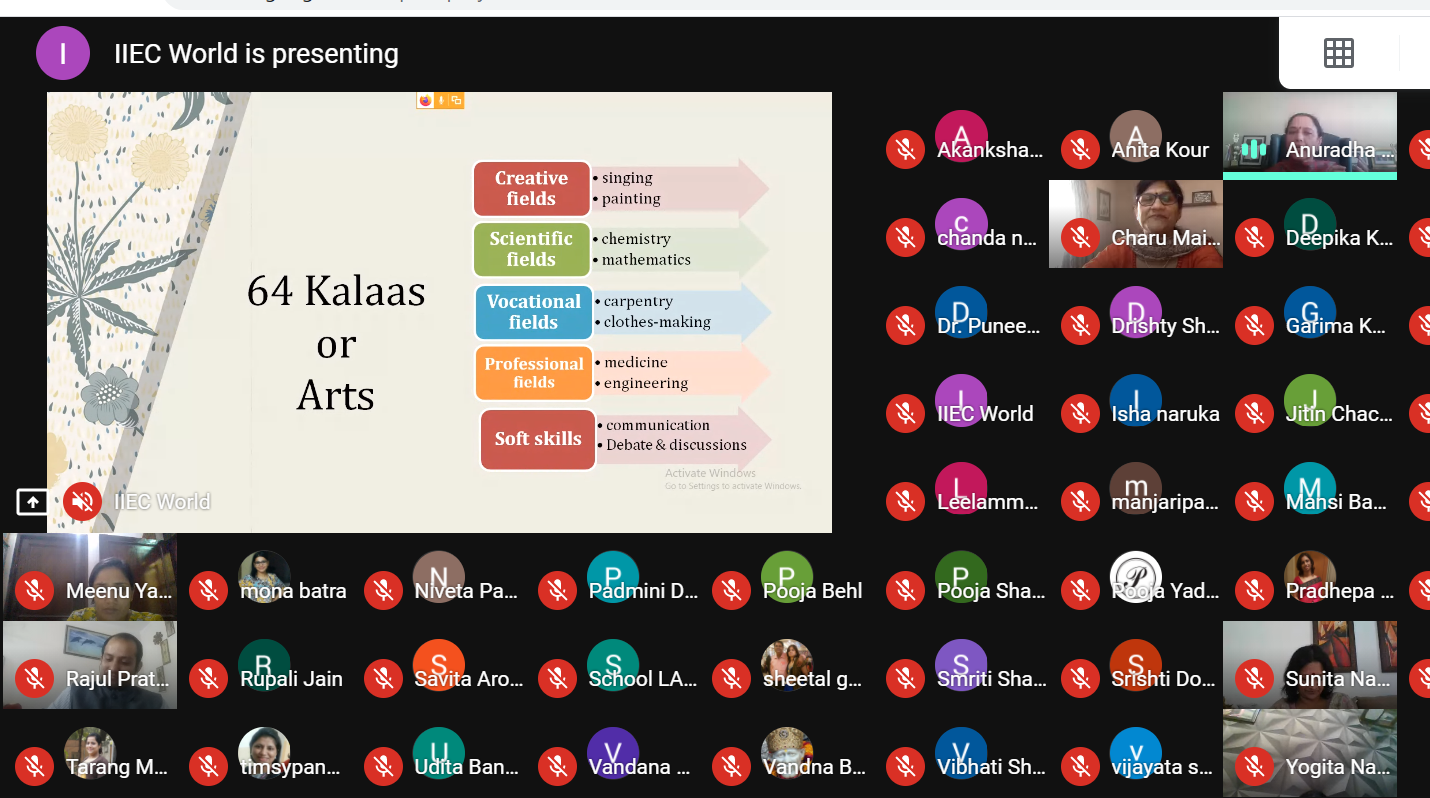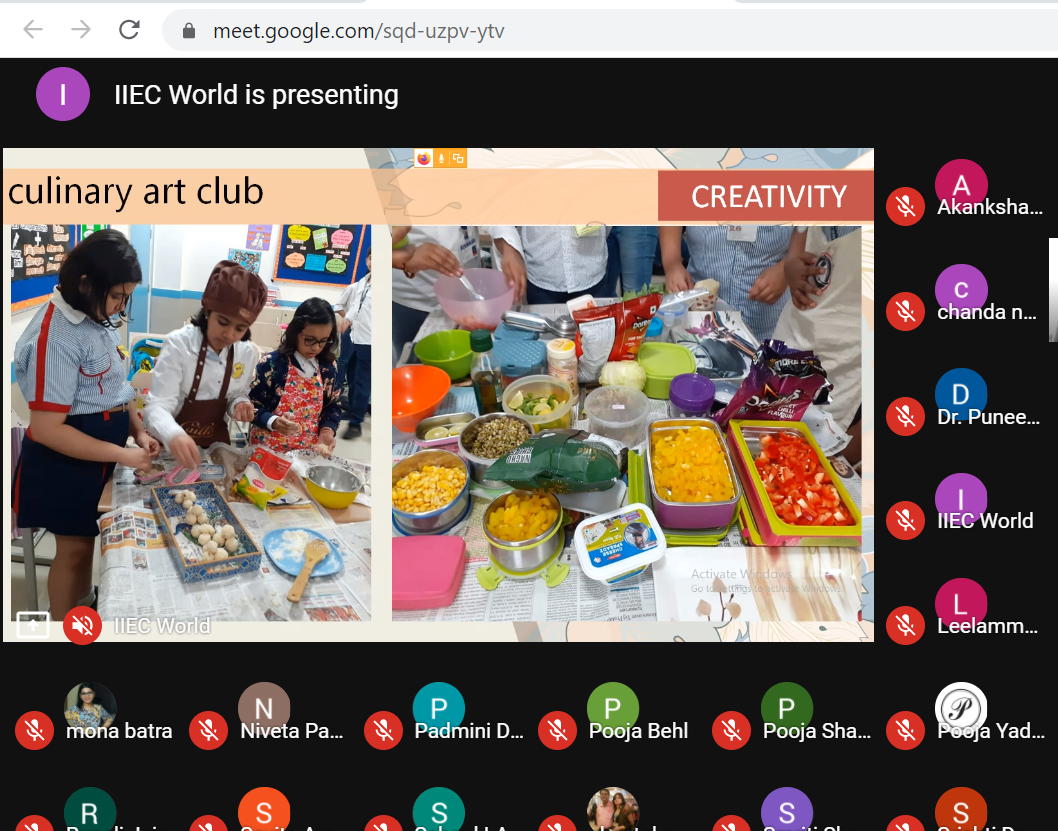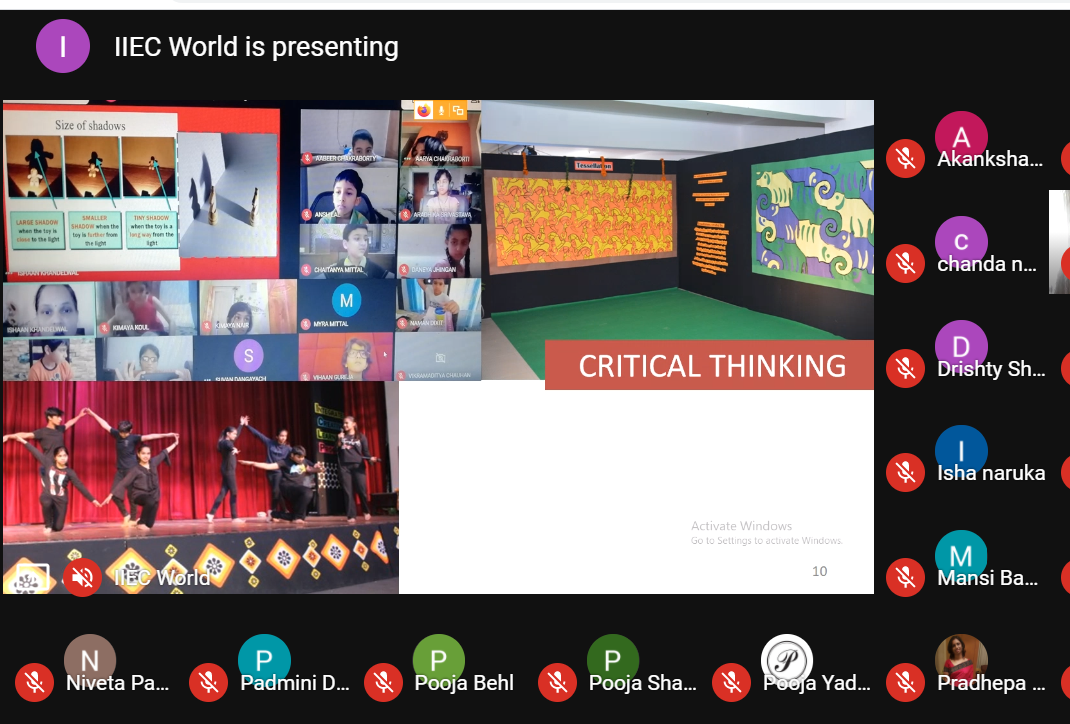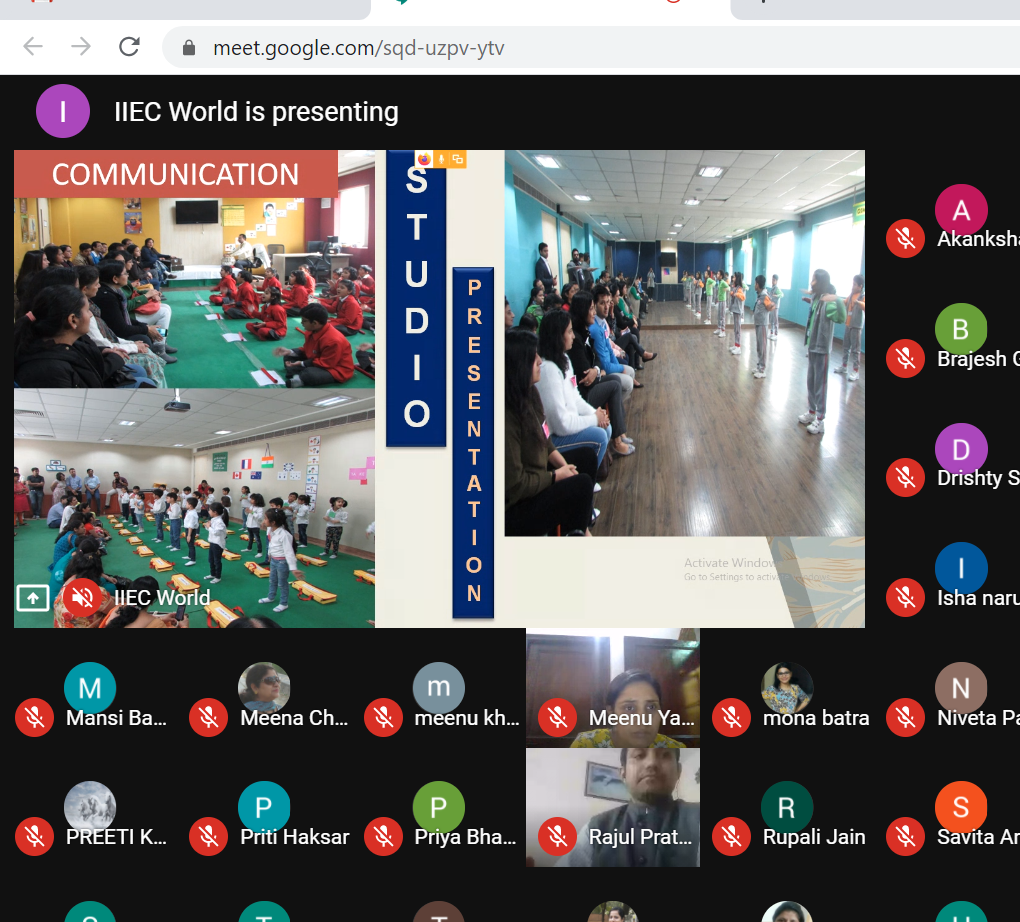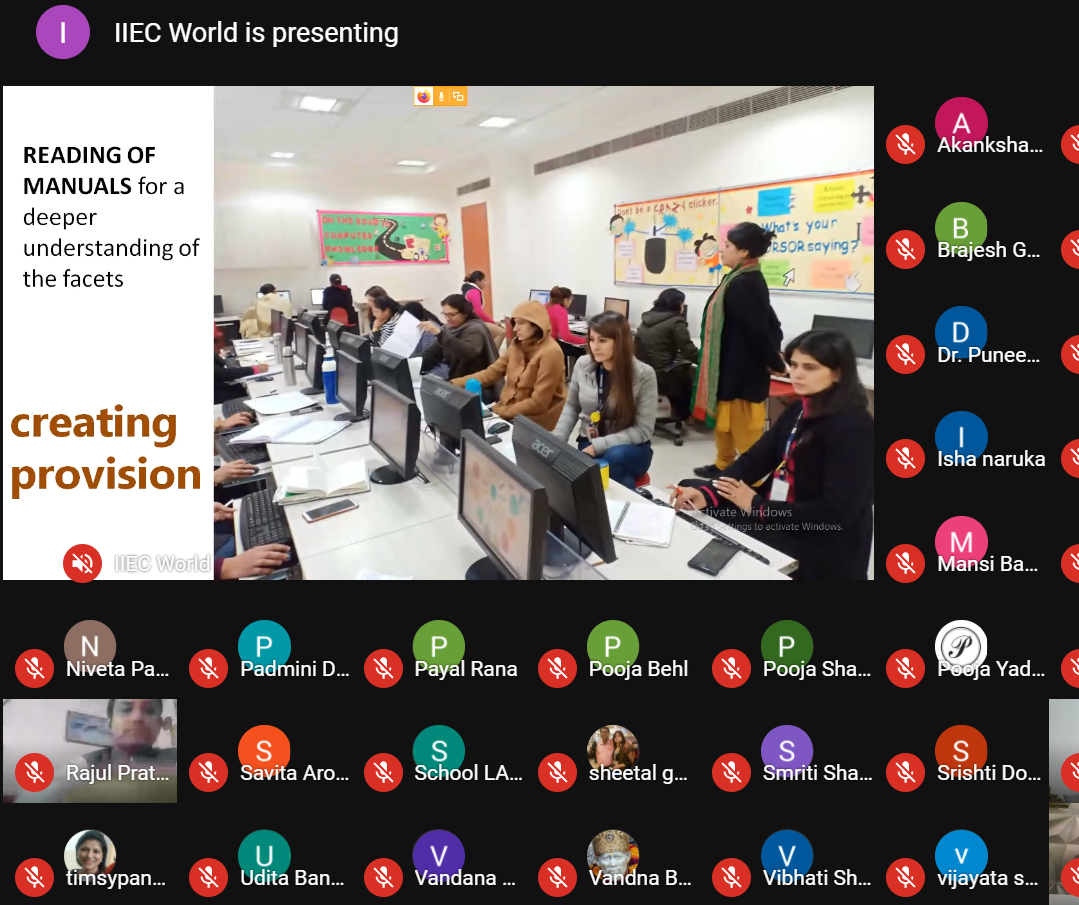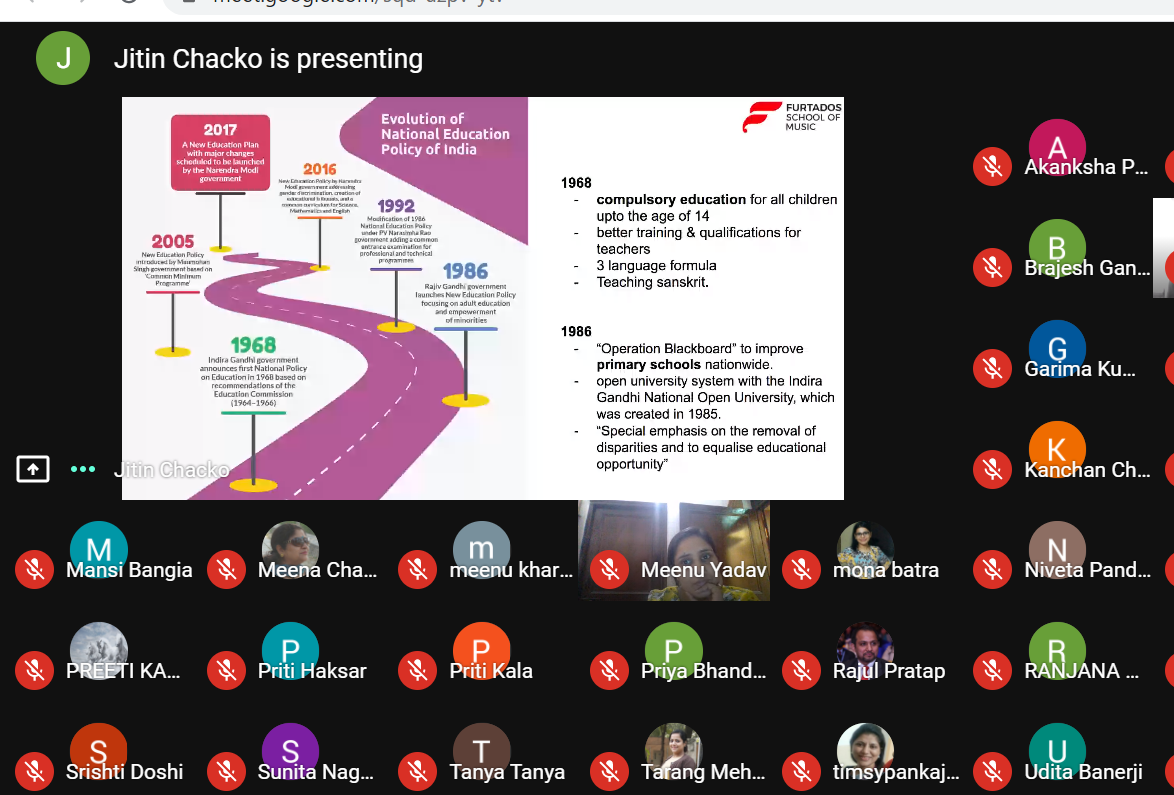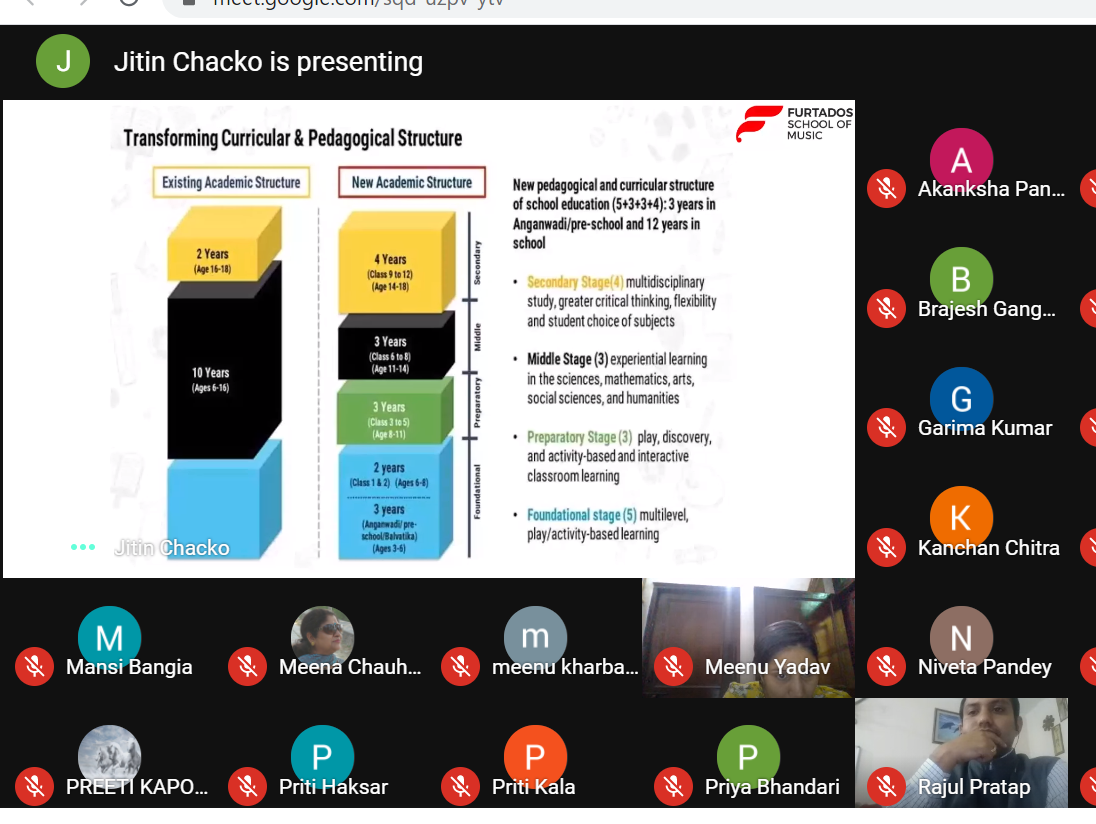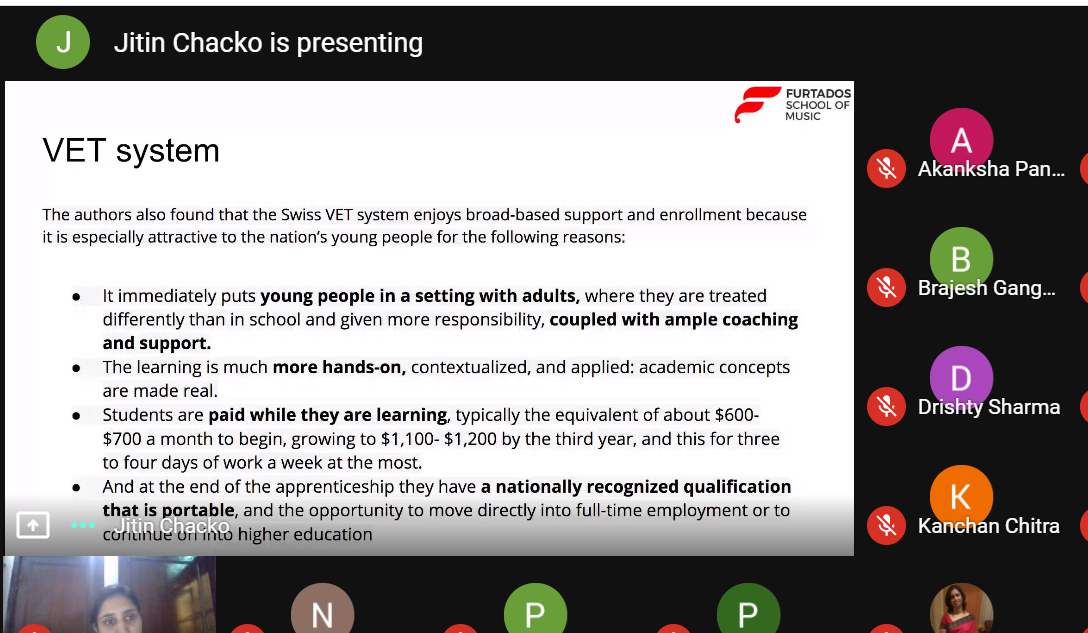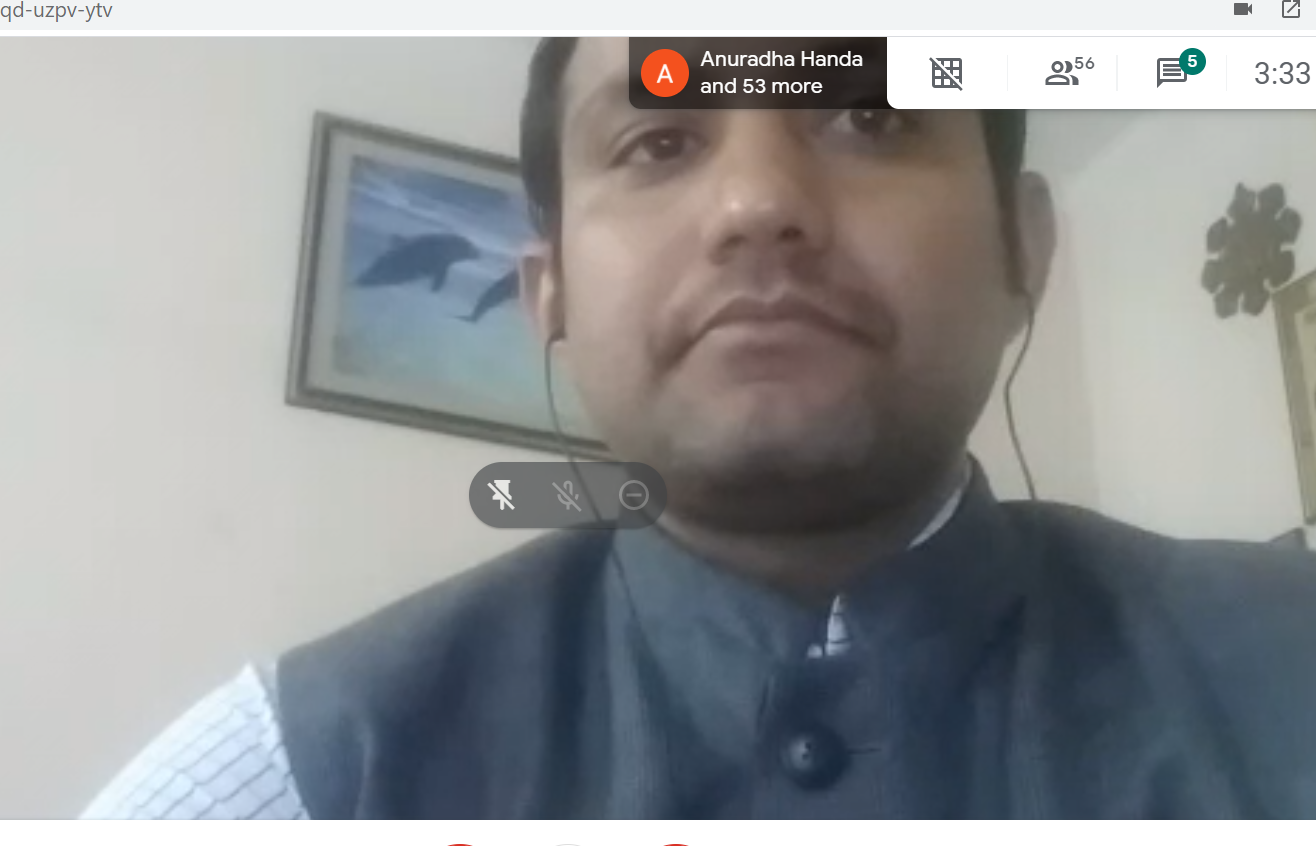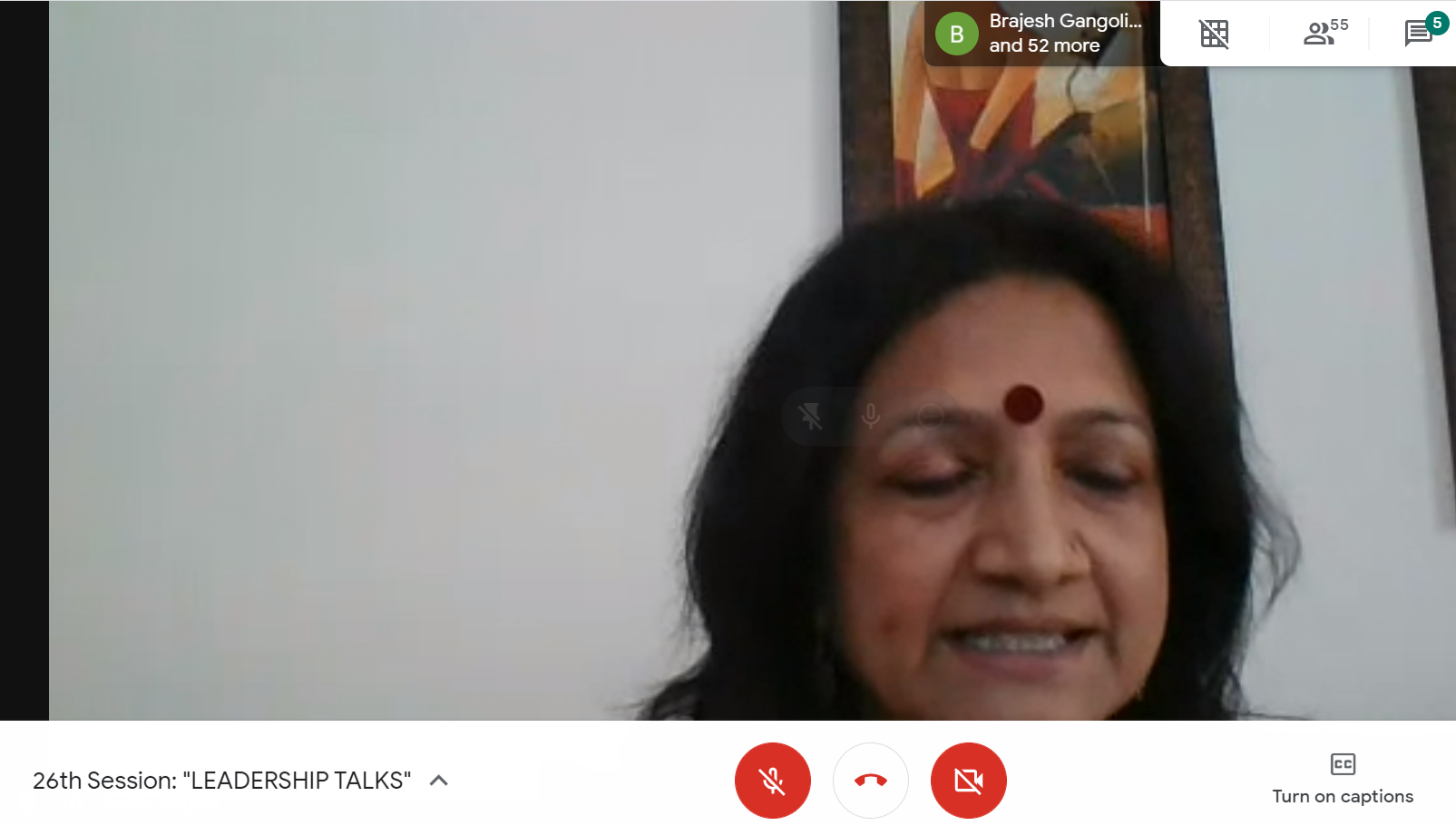WEBINAR- DECODING THE NEP 2020
(OCTOBER 05, 2020)
The webinar was conducted on 06 October 2020 by India International Educational Council in association with School Lalaji Solutions. The panelists were eminent educationists from reputed institutions of Gurgaon. Numerous such webinars have been conducted by IIEC and School Lalaji Solutions across the country. This was the 26th edition of the session on NEP.
The panelists for the 26th session were Ms. Anuradha Handa - Principal, GD Goenka Public School, Sec 48, Ms. Charu Maini - Principal, DAV Public School Sec 49, Ms. Sunita Nagpal - Principal, KR Mangalam World School, Dr Puneet Goswami - Professor SRM University, Haryana and Mr Jitin Chacko from Furtado’s School of Music. The webinar was moderated by Mr. Ranjul Pratap, CEO, School Lalaji Solutions.
Ms. Charu Maini began the deliberations by acknowledging Gurgaon as an education hub. She found the present NEP very exciting with its focus on human resource, learning and unlearning and emphasis on 21 century skills. The NEP would create lifelong learners. She praised the Kothari commission but rued the fact that it was a failure due to lack of implementation. Ms Anuradha Handa seconded the opinions expressed by Ms. Maini. She emphasised on creating a joyous learning environment through school that were designed as per the needs of children. She praised the NEP’s focus on empowering the teachers. Dr. Puneet Goswami spoke about the need to devise methods to inculcate skill sets in both students and teachers as teachers are also learners. He made a point by saying that most urban schools are already equipped for critical and analytical thinking but focus must be on creating skill sets from students who belonged to from lower economic strata. Mr. Jitin Chacko who is an art educator touched upon integrating music with other disciplines.
Ms. Charu Maini said that experiential learning must be meaningful and holistic. Students must work with hands to learn concept. She said that teachers need to be empowered. She was particular that special focus must be given to gifted students or specially abled students. Ms nSunita Nagpal was happy that this NEP was implementable as there was special emphasis on no more rote learning. It was important to make hubs in remote areas in order to do away with hindrances that obstruct implementation of new strategies. She repeated that project and activity based learning with the teacher as facilitator was important. Ms. Anuradha Handa was firm in her belief that institutions do want to move away from rote and the NEP will change how assessments happen. She said that India has great history of education. By taking education back to art and inculcating experiential learning through programmes such as STEM would transform education. Ms. Handa stressed on the need to build social skills and mould students into aesthetic being in order to create complete individuals who would be leaders and innovators, but more importantly, good human beings.
Dr Puneet Goswami asked everyone to critically examine the NEP. He wanted to know what would be the fate of those children whose parents have no smartphone. He urged educators and stakeholders to formulate a plan for rural areas. He stressed that no innovation was possible without industrial academic collaboration. Mr. Jitin Chacko connected education to economic growth. He said that learning music helps students to exercise the brain as music helps to learn without being judged, and ensures that both sides of the brain are used.
The webinar concluded with reiteration on skill education and the freedom to choose subjects. There was a need to implement vertical learning where ensuring knowledge acquisition the main focus, not just covering syllabus. Ms Handa said that the NCERT is important as the CBSE is the main examining body, however she said that the NCERT is also changing. There should be focus on hands on learning at all levels of education.

